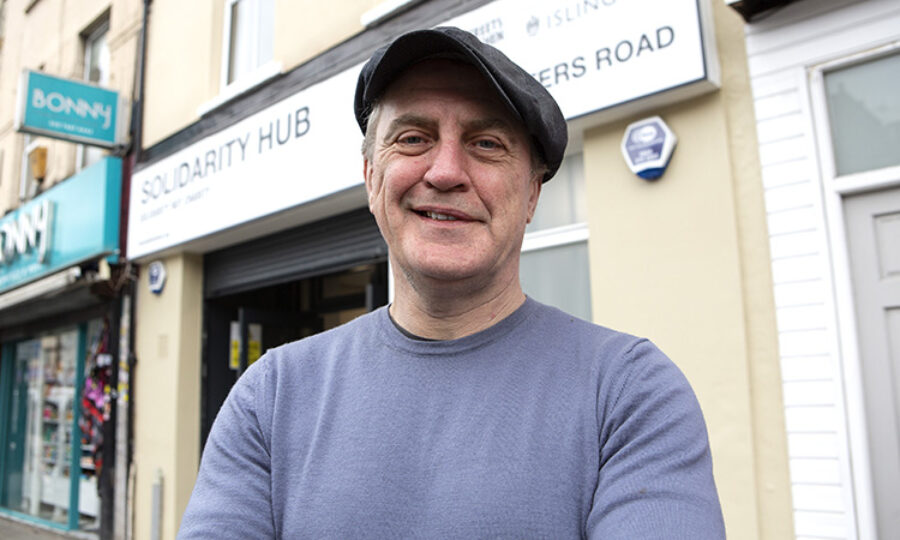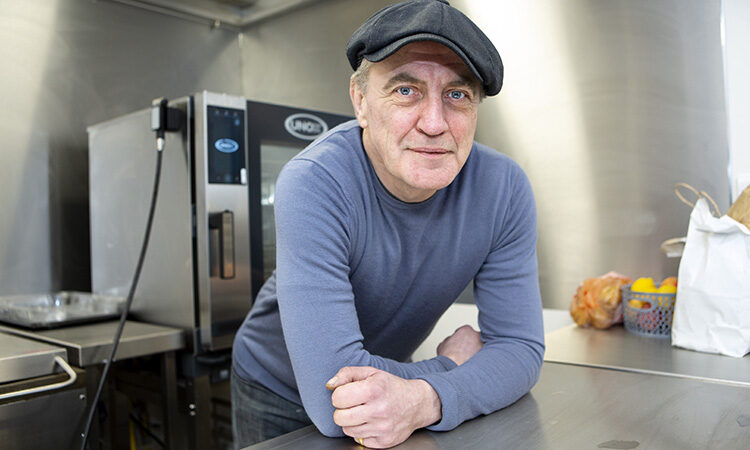In conversation: Jon Glackin

The founder of Streets Kitchen on how the new hub on Seven Sisters Road is helping homeless people through solidarity, not charity
Tell me about Streets Kitchen. How did it come about?
I founded Streets Kitchen around eight years ago and I’m now one of the co-ordinators. We saw a need for homelessness services outside of the city centre, in boroughs like Camden, Islington and Hackney. People needed basic things like food and sleeping bags – the essentials. We started to address this need locally.
We’ve worked with a lot of local communities, particularly in Islington. We’ve run a solidarity centre here before, which was very successful, supporting more than 100 people a day. We also ran a solidarity shelter in Hornsey Road, again with great community support. We set up the Islington Homeless Task Force, working with other community groups like Museum of Homelessness and Union Chapel. During Covid, we actually worked out of Popham and Cummings Community Centre. The council gave us use of it, so we could provide crucial supplies to those in need.
What is your experience of homelessness and how does that inform Streets Kitchen?
I have had periods of homelessness; I’ve squatted for a long time, too. I have lived on the streets in the city, so I understand and know what problems people face. Quite a lot of our crew are ex-homeless, homeless or living in temporary accommodation. What we’re trying to do is set up the services we would like to have been available.
Tell me how Streets Kitchen works. What services do you provide?
We supply very basic services on the streets of London to those in dire need. We also run day centres, which are crucial. People just want somewhere warm and welcoming; where they’re accepted and not looked down on, which can happen in other places. We’re still working out a programme, but it will include services like Westminster Drug Project, StreetVet, a district nurse and a doctor. Watch this space.

How do people access your services?
In general, people just walk up to us on the street. Word of mouth is our best advertisement. We engage with people face-to-face, every day, across London.
What needs to be done to put an end to homelessness?
The answer lies in the community. The community can see the problem and only through working in solidarity and helping each other can this be solved. Homelessness could happen to any of us. There is a good community here in Islington – a multicultural community who live and work together – and that’s really important.
How will the new space support your work?
It marks a new chapter. Islington feels like a great place to be doing this because there is a feeling of hope here. Basically, we’re going to make accessing services a lot easier. Rather than having to go to a formal setting, like an office or GP surgery to access services, you can come here. We’re not going to force you, but support is here if you want it.
We will be talking to the homeless community to find out what they want. Homeless people know how to end homelessness so really, we’re just here to support them in any way we can. We will just keep it simple: treat people with a little bit of dignity and respect and we can make change. That’s all there is
to it.
To find out more, including how to volunteer, visit the Streets Kitchen website
